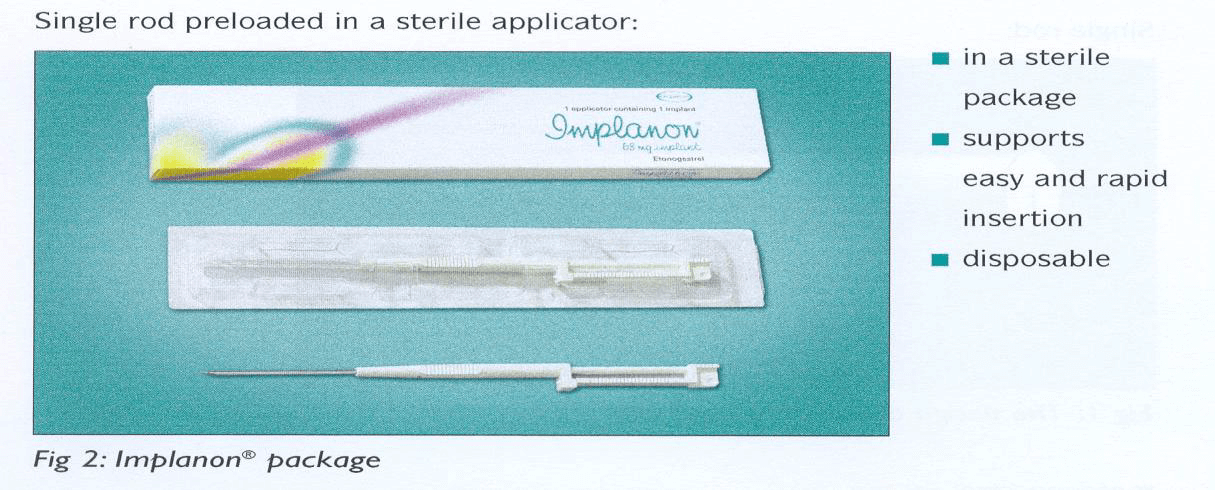
Implants are small plastic rods or capsules, each about the size of a matchstick, that release a progestin like the natural hormone progesterone in a woman‘s body. With this method, a trained health worker puts small, soft tubes of progestin under the skin of a woman‘s arm. The implant then prevents pregnancy for 3 to 5 years, depending on the type of implant. Following are the available different types of subdermal contraceptive implants:
Two (2) rods implant and effective for five years, available in a sterile pack. This method is in use in Ethiopia, and is provided by many trained health professionals in Health Centres and hospitals but not at health post level
Two (2) rods implant and effective for four years, available in a sterile package.
Has 1 rod, and is effective for three years. Over the three years, use of Implanon less than one pregnancy per 100 women (1 per 1,000 women) will occur. Implanon is registered in Ethiopia and has been approved by the ministry of health to be provided by health extension workers at health post level.
Next, you will learn more about this method, its advantage, disadvantage, how to insert and manage its side effects.
Implanon is a new implant with only one rod or capsule that can be inserted just under the skin of the upper arm to deliver progestin into the blood stream. Implanon is easy to use and has longer protection (3 years). It covers a broad range of clients and fertility returns immediately after removal. Implanon makes insertion and removal much easier and produces fewer side effects for users as compared with other implants. Implanon is inserted using a special designed preloaded applicator that eliminates the need for a separate incision and it takes less than one minute for a trained health professional

How effective is Implanon?:
Implanon provides effective, reliable and reversible contraception for a maximum of three years, after which time the implant should be removed and replaced with a new one if the client still doesn‘t want to become pregnant and comfortable with the method. Implanon has proved to be extremely reliable in preventing pregnancy. This exceptional efficacy is mainly achieved by ovulation inhibition /ability to prevent release eggs from ovaries/, and thickening cervical mucus prevents entrance of sperm into the uterus.
Who can use Implanon?:
Women of any reproductive age or parity including women who:
Who cannot use Implanon?:
When to start using Implanon?:
Possible side-effects and its management